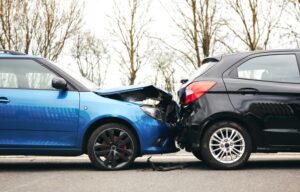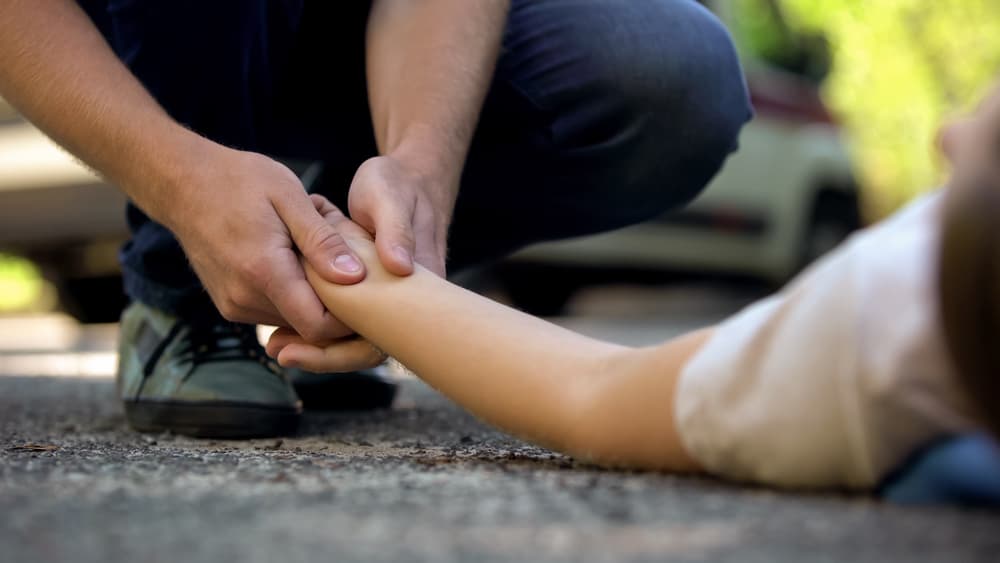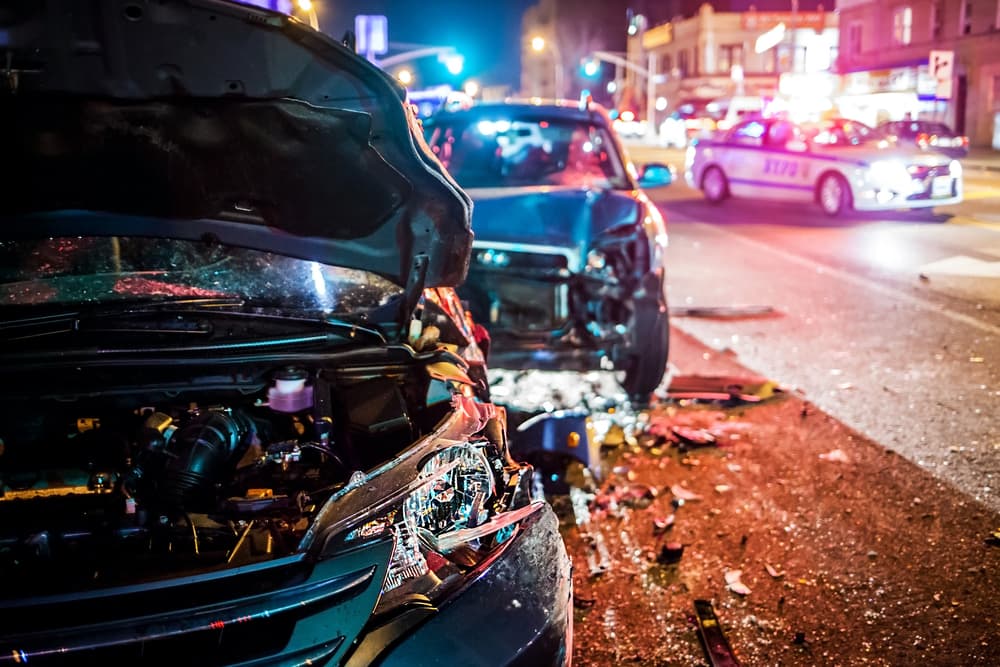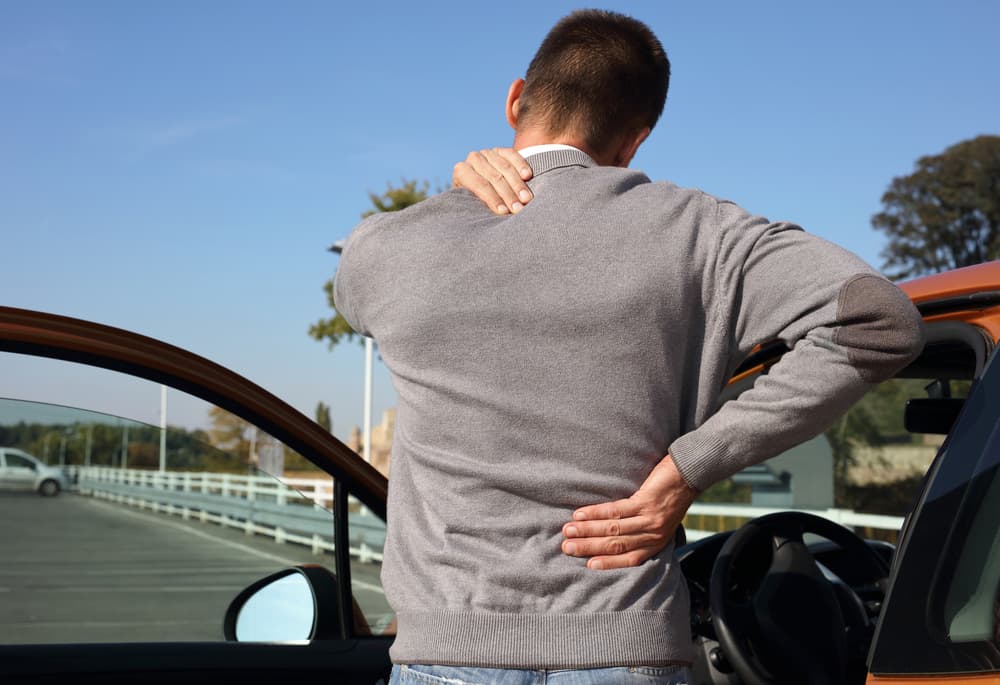Rear end collisions are among the most common traffic accidents in Columbia. Whether these wrecks result from distracted driving, speeding, or other factors, they can have life-changing consequences for victims.
If you or a loved one has been involved in a rear-end collision, it's essential to consult with an experienced car accident lawyer in Columbia to protect your rights and seek the compensation you deserve.
Who Can You Hold Responsible for a Rear End Collision?

A rear end collision occurs when one vehicle strikes the back of the vehicle in front of it. Typically, the vehicle in the rear is in motion when this type of accident happens, while the leading vehicle stops, drives slowly, or decelerates. However, some rear end collisions involve both vehicles traveling at speed.
Several factors can contribute to a rear end collision, such as sudden braking by the leading driver, distracted driving by the following driver, or adverse road conditions that reduce traction.
Often, these collisions take place at intersections, in heavy traffic, or in areas where speeds suddenly change. While many rear end collisions result in minor injuries and vehicle damage, they can also cause significant harm, especially if the impacts occur at high speeds.
How Common Are Rear End Collisions?
According to recent data from the National Safety Council:
- About 3,890,000 rear end collisions happen every year nationwide.
- Rear end crashes represent roughly 29.5 percent of all traffic collisions and 41.7 percent of all crashes involving other motor vehicles.
- About 3,600 people die in rear end collisions every year.
- People who died in rear end collisions account for approximately 7.7 percent of total traffic fatalities and 17.9 percent of the deaths in collisions with other vehicles.
- Rear end collisions cause about 915,000 injury crashes, resulting in approximately 1,597,000 nonfatal injuries requiring medical consultation.
- Nonfatal injuries from rear end collisions constitute 28.1 percent of all injuries in traffic accidents and 39.6 percent of the injuries in collisions with other motor vehicles.
Common Causes of Rear End Collisions
Pinpointing the factors that caused the rear end collision that harmed you allows you to identify liable parties and strengthen your compensation claim.
Here are some common examples of contributing factors in rear end collisions:
Speeding
When a driver speeds, they reduce their reaction time to unexpected events on the road since traveling at higher speeds covers more ground in less time. If something unexpected occurs, such as the vehicle ahead braking suddenly, the speeding driver might not have enough time to stop. Speeding also increases the force of impact, making potential injuries more severe in the event of a collision.
Distracted Driving
Distracted driving takes a driver’s attention, hands, or eyes away from the primary task of safely operating their vehicle.
When a driver checks their phone, adjusts the radio, or engages in any other distracting activity while driving, they become less aware of their surroundings. This inattention means they might not notice slowing or stopped vehicles ahead of them in time, possibly leading to a rear end collision.
Driving Under the Influence
Alcohol and drugs impair a driver’s ability to operate a vehicle safely. They affect judgment, coordination, and reaction times. A driver under the influence might not recognize the need to decelerate or stop when approaching a slower or stopped vehicle, increasing their risk of rear-ending the vehicle in front.
Driver Fatigue
A tired driver has slower reaction times and diminished judgment. Fatigue can even cause microsleeps, where the driver dozes off for a few seconds without realizing it.
During these brief moments, the vehicle can travel a significant distance without any control, making rear end collisions more likely if another driver in front slows or stops.
Reckless Driving
Reckless driving involves a deliberate disregard for the safety of others on the road. When a driver weaves in and out of traffic, tailgates, or doesn’t adhere to traffic signals, they increase the risk of rear-ending another vehicle. Rear end collisions caused by reckless drivers often occur at high speeds and result in devastating injuries.
Aggressive Driving
Aggressive driving occurs when a driver engages in intentionally hostile actions, such as tailgating and road rage, directed at other drivers.
Aggressive drivers often follow vehicles too closely, which significantly reduces their reaction time and increases the risk of rear end accidents. Some aggressive drivers even cause rear end crashes when they purposely cut too closely in front of others or brake check following drivers.
Vehicle Defects
If inadequate maintenance or a manufacturing defect results in faulty brakes, worn-out tires, or malfunctioning brake lights, it can contribute to rear end collisions.
For instance, if brakes don’t respond as expected, the driver might not stop the vehicle in time. Or if brake lights don’t signal that a vehicle is slowing down, the driver behind might not realize the need to stop.
Poor Road Conditions
Rain, snow, ice, and even poorly maintained roads with potholes or debris can affect a driver’s ability to stop in time. Slippery roads reduce tire traction, and hitting potholes can momentarily divert a driver’s attention, both of which could result in rear-ending the vehicle in front if drivers aren’t cautious.
What Are My Options if I Suffer Harm in a Rear End Collision?
If you are in a rear end collision, you might face mounting medical bills, income losses, and other unforeseen expenses. Knowing the sources of compensation available to you can provide significant relief as you recover from your injuries.
Depending on the circumstances, you might have one or several of the following options:
- Third-Party Liability Insurance Claim: If another driver is at fault for causing the rear end collision, you could file a claim against their liability insurance. Compensation from this type of claim can cover medical bills, lost income, property damage, and pain and suffering.
- PIP/MedPay Claim: Personal injury protection (PIP) and medical payments (MedPay) insurance are types of no-fault coverage. If you have this coverage, your own insurance company pays for your medical bills and, in some cases, lost income, regardless of who caused the accident. The specific coverage depends on the policy and your state’s regulations.
- UM/UIM Claim: Uninsured motorist (UM) and underinsured motorist (UIM) coverage come into play when the at-fault driver either has no insurance or doesn’t have enough insurance to cover your losses. If you have this (usually optional) coverage, you can turn to your own UM/UIM provider to pay for your losses in such situations.
- Health Insurance Claim: If you sustain injuries in a rear end collision, your health insurance might cover your medical expenses. However, you usually must exhaust other sources of coverage, such as auto insurance coverage, before your health insurance provider will pay.
- Personal Injury Lawsuit: If insurance claims don’t adequately cover your losses or if liability disputes arise, you and your lawyer could pursue a personal injury lawsuit against the at-fault party. By filing a lawsuit, you seek compensation directly from the responsible party, potentially covering a broader range of losses than insurance might pay for.
What Should I Do After a Rear End Collision?
Once you’ve left the scene of the rear end accident and received appropriate medical attention, to safeguard your rights and ensure your well-being:
- Follow your doctor’s care plan and attend all follow-up appointments.
- Document any injuries with photographs and detailed notes.
- Keep a journal chronicling your recovery and any pain or discomfort.
- Save all medical bills, prescriptions, and related expenses.
- Inform your insurance company about the accident.
- Avoid giving any recorded statements to insurers without legal advice.
- Obtain a copy of the police report for your records.
- Maintain a record of any time you miss at work and resulting income losses.
- Avoid discussing the crash on social media or with anyone but your attorney.
- Get estimates for the repair or replacement of your vehicle.
- Contact a rear end collision lawyer for a free initial consultation session.
- Avoid accepting any settlement offers without legal consultation.
Who Is Liable in a Rear End Collision?
In most rear end collisions, the driver of the rear vehicle bears the responsibility. They have a duty to follow at a safe distance and remain attentive, ensuring they can react in time to any sudden stops or changes in the flow of traffic.
Failure to maintain this safe following distance, often due to distractions, speeding, or aggressive driving, usually results in liability for the rear driver when a collision occurs.
However, there are exceptions. In some cases, the leading driver might bear some, if not all, of the liability. For instance, if the front driver suddenly reverses, has non-functional brake lights, or makes an unexpected stop, they could be at fault or at least share the blame. A leading driver could also be at fault if they change lanes suddenly without leaving enough room for oncoming drivers to react.
Furthermore, if road conditions or other external factors play a part in the collision, other parties might share the responsibility.
For instance, if a local municipality failed to address a known road hazard that contributed to the accident, it could bear some liability. Similarly, an auto manufacturer might need to pay for a rear end collision resulting from preventable brake failure due to manufacturer error.
How Do You Prove Fault in a Rear End Accident Case?
Establishing fault in a rear end collision case requires gathering and presenting strong evidence. A comprehensive collection of proof supports your compensation claim and strengthens your legal position against the at-fault party.
Here’s a breakdown of the types of evidence your lawyer might use to prove your case:
- Accident Scene Photographs: Capturing images of the accident scene can provide useful insights later on. Photos of vehicle positions, skid marks, road conditions, and vehicle damage patterns are often instrumental in illustrating the sequence of events and the force of the impact.
- Witness Statements: People who witnessed the accident can offer impartial accounts of what transpired. Their testimony can corroborate your version of events and provide additional perspectives on the causes of the collision.
- Video Footage: Sometimes, surveillance cameras from nearby businesses, traffic cameras, dash cams, or cell phones capture the accident. Reviewing this footage offers a real-time account of the collision, potentially highlighting the at-fault driver’s actions leading up to the impact.
- Vehicle Damage Assessments: Inspecting the damage to the vehicles that collided can indicate the speed, angle, and force of the collision. Expert evaluations of the damage can further pinpoint the sequence of events.
- Medical Records: These documents illustrate the severity of any injuries you sustained in the crash. Medical records showing that you sought prompt care also link your injuries directly to the rear end collision, bolstering your claim for compensation.
- Cell Phone Records: If your lawyer thinks distracted driving is a cause of the crash, they might seek cell phone records. These records can indicate if the at-fault driver was texting, calling, or using their phone at the time of the accident.
- Expert Testimony: In some cases, your lawyer might ask accident reconstruction experts to recreate the crash scene. Through their expertise, they can provide insights into factors like speed, braking distances, and impact forces, further establishing liability.
How Can a Lawyer Help With My Rear End Crash Case?

The best way to protect your rights and maximize your potential compensation after a rear end accident is to work with a seasoned Columbia personal injury lawyer attorney.
A rear end collision lawyer can help you by:
- Evaluating the strength and potential value of your claim
- Identifying and preserving useful evidence from the scene of the collision
- Obtaining and reviewing the police accident report
- Gathering and organizing medical records relating to your injuries
- Consulting with accident reconstruction experts, if necessary
- Coordinating with medical experts to testify about the severity of your injuries
- Seeking out witness testimony that can bolster your case
- Handling all correspondence and negotiations with the insurance adjusters
- Investigating the at-fault driver’s driving history
- Determining all potential sources of compensation available to you
- Calculating the full extent of your losses, including future medical expenses
- Filing the necessary paperwork and meeting all legal deadlines
- Preparing a compelling case for settlement negotiations or trial
- Negotiating aggressively with insurers to maximize your settlement
- Advising you on any settlement offers from the insurance company
- Representing you in court if a lawsuit becomes necessary
- Challenging any attempts by the defense to downplay your claim
- Keeping you informed about any updates or progress in your case







